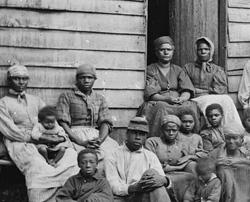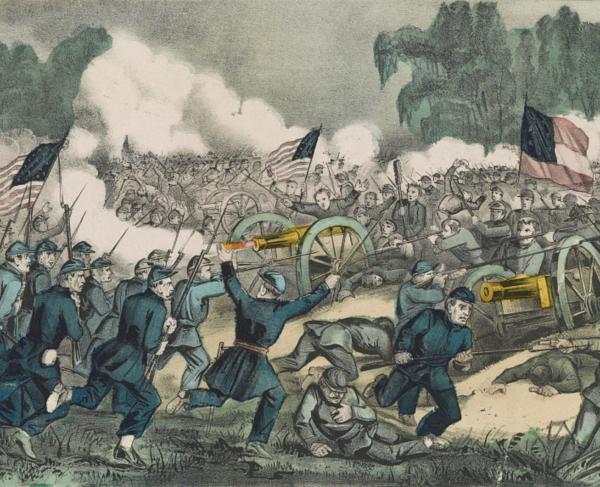“Thenceforward and Forever Free”

Hallowed Ground Magazine, Fall 2012
What would the emancipation of slaves mean? Which slaves would actually be freed? How would emancipation change the course of the war? President Abraham Lincoln had a lot to consider as he pondered the issuance of his preliminary Emancipation Proclamation in September 1862. Lincoln began his presidency vowing not to interfere with slavery where it already existed, but 17 months of war changed that.
While Lincoln personally felt that freeing the slaves would be “an act of justice,” he had to consider whether or not such an act was constitutional. He also realized that he could not free all of the slaves, including those in the vital Border States that remained loyal to the Union. Lincoln determined that emancipating slaves in the areas of rebellion that were not under Federal control was “warranted by the Constitution” as “a fit and necessary war measure for suppressing said rebellion.” Slave labor was used to support the Confederate Army, he reasoned, and therefore gave the Confederacy a distinct advantage. Lincoln surmised that freeing these slaves would weaken the power of the Confederate army, thus justifying the Emancipation Proclamation as an act of “military necessity” that was valid under the Constitution.

After determining the proclamation’s constitutionality, Lincoln had to consider the political atmosphere and the timing of his announcement. The Union had not yet won a major battle in the East and not everyone in the North supported the idea of fighting a war for the freedom of slaves. Depending on the timing of the announcement, some might have even considered it a last-ditch effort to support an army that could not otherwise suppress the rebellion. Lincoln and his advisors agreed that a victory was needed before any announcement of emancipation could be made. This victory would raise morale and support for the war from the public while showing that the Union army was strong enough to fight the rebellion on its own.
The Battle of Antietam, September 17, 1862, proved to be exactly what Lincoln needed. Although the tactical results of the bloody battle were inconclusive, Gen. Robert E. Lee and his army retreated back to Virginia, allowing Lincoln to claim a strategic victory. On September 22, 1862, he released the preliminary Emancipation Proclamation, which served as a warning to the states in rebellion: if they did not rejoin the Union by January 1, 1863, their slaves would be freed.
The fighting continued, however, and with the New Year, the Emancipation Proclamation took effect in the ten rebellious states — Alabama, Arkansas, Florida, Georgia, Louisiana, Mississippi, North Carolina, South Carolina, Texas and Virginia. In the Proclamation Lincoln declared, “All persons held as slaves within said designated States, and parts of States, are, and henceforward shall be free.” He also pledged that, “the Executive Government of the United States, including the military and naval authority thereof, will recognize and maintain the freedom of such persons.” However, because Lincoln did not want to incite a slave rebellion, he cautioned the freed slaves to abstain from all violence, unless in necessary self-defense.” He also recommended that “in all cases when allowed, they labor faithfully for reasonable wages."
The Emancipation Proclamation changed the meaning and purpose of the Civil War. The war was no longer just about preserving the Union— it was also about freeing the slaves. Foreign powers such as Britain and France lost their enthusiasm for supporting the Confederacy. Furthermore, the Emancipation Proclamation also stated that, “Such persons of suitable condition, will be received into the armed service of the United States ….” African-Americans could now join the army, and eagerly did so, aiding the Union war effort. Over the course of the war, roughly 200,000 African-Americans served in the Union forces.
Although many more amendments and laws would need to be passed before African-Americans enjoyed the full rights of citizenship, the Emancipation Proclamation was the first bold step in that process.


